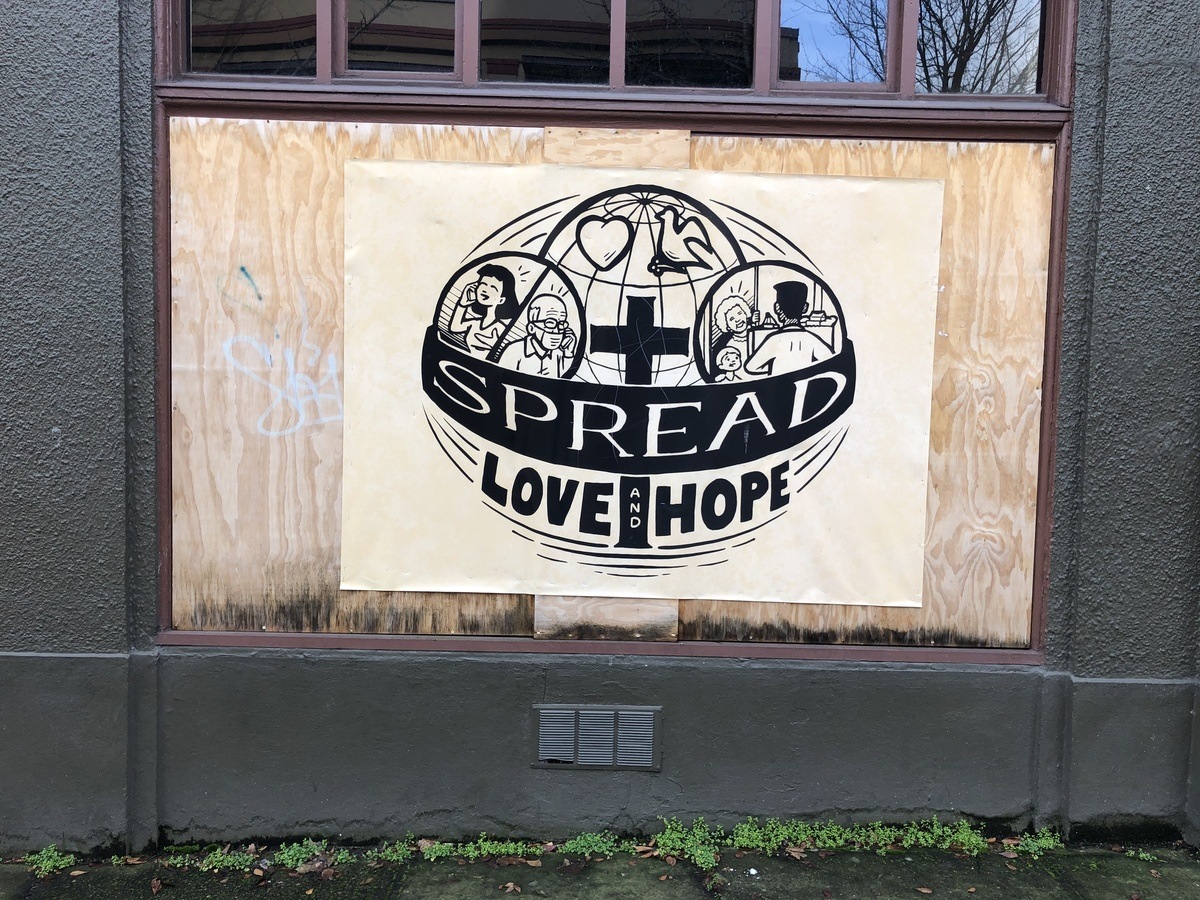
Photograph by Nathaniel St. Clair
With his thin volume (143 pages of text, with 46 pages of notes) Epidemic Illusions: On the Coloniality of Global Public Health, Eugene Richardson takes to task the discipline of epidemiology, and with it, global public health. Utilizing the West Africa Ebola epidemic of 2013-2016 as his canvas, Richardson paints a picture that highlights the racism that undergirds the conventional medical and public health perspectives.
Richardson is an infectious disease specialist and an anthropologist. He has extensive experience responding to health crises around the globe, including joining Partners in Health to care for those suffering from Ebola in Port Loko, Sierra Leone. It was not his first stint with Partners in Health. As he tells Paul Farmer, who writes the Forward, he had had a practicum with PIH in Peru many years ago – from which “I got fired after a month for being obnoxious.” While he might regret his youthful punk attitude now, this is telling of Richardson’s impertinent, anarchist attitude toward authority. Richardson cites the recently passed anthropologist David Graeber, who, in Fragments of an Anarchist Anthropology, called for “hundreds of activists in fairy suits tickling police with feather dusters” (p. 84). Epidemic Illusions has this carnivalesque air.
During the West Africa Ebola epidemic (as well as in the more recent Kivu epidemic of 2018-2020), distrust of government and international aid workers was high. As  Richardson points out, however, when the people of the region have been subjected to centuries of slavery, colonial subjugation, and wealth extraction – why would they not be suspicious of public health measures that strive to contain the epidemic but offer little in the way of treatment? When caregivers fall ill for attending to their loved ones, particularly after they die – why are they blamed for their “backward” beliefs?
Richardson points out, however, when the people of the region have been subjected to centuries of slavery, colonial subjugation, and wealth extraction – why would they not be suspicious of public health measures that strive to contain the epidemic but offer little in the way of treatment? When caregivers fall ill for attending to their loved ones, particularly after they die – why are they blamed for their “backward” beliefs?
Richardson’s point here is that an unthinking application of the tools of epidemiology and global public health is akin to taking a snapshot. Large-scale historical and social forces, political economy, are not captured by rapid epidemiological assessments. Furthermore, from where do these public health tools come? Much “tropical medicine” and “international health” was developed to protect the colonizer from the infectious diseases that afflicted the peoples that they colonized. Global public health continues to carry the baggage of colonial medicine. Thus,
In this way, the blinkered logic of protected affluence, which holds that people become sick because a close contact transmitted bits of viral ribonucleic acid (RNA) to their person – not because centuries of predatory accumulation by foreign elites became embodied as hemorrhagic fever – becomes normalized as a commonsense view. (p. 70)
What is the relevance for those of us who do not possess the undying commitment of a Richardson or a Farmer to deliver care to the destitute sick around the globe? Richardson’s critique of epidemiology and public health can be applied to the COVID-19 catastrophe in the U.S. This year, everybody has become an epidemiologist. Here, for example, is a YouTube video on Simulating an epidemic created by a math and computer science person. The video depicts individuals as points or stick figures in square enclosures. The only interaction they have is to bounce off each other, like billiard balls, transmitting the virus. Of course, the point of this overly simple model is to educate about concepts such as R0 and epidemic curves. However, any considerations such as history and political economy are erased in such models. The underlying assumption of such a model is that the individual is the unit of analysis. Under neoliberalism (which I think of as capitalism on steroids), the organizing principle of the contemporary world, we are all on our own now. Can’t make it in this economy? That’s your fault. Maybe you should have studied for an MBA. As Margaret Thatcher admonished us, “There is no such thing as society.”
But we know in our hearts that she was wrong. Also, during this year, we have gained a better understanding of white supremacy. We had trouble seeing it before because it is the water that we fish swim in. Black Lives Matter has helped the scales fall from our eyes. As we delve into the history of the construct of “race,” we clearly see that “race” was made up by the slaver to justify enslavement, by the plantation owner who exploited slaves, and by the merchant enriched by the slave trade. The white supremacist version of history was written by the white man. They made it up. Just as humans made god, not the other way around, as Nietzsche taught us.
To blame essential workers for contracting the coronavirus, to blame them for living in multigenerational, crowded housing is to weaponize epidemiology in a manner that dovetails with racism. It is structural racism that relegates minorities to redlined housing and essential work with no paid sick leave. It is structural violence that leads to infection and death.
As Black Lives Matter is to white supremacy, Epidemic Illusions is to epidemiology. It shows us how global public health is itself fraught with white supremacy and colonial assumptions. It is a book for our times.